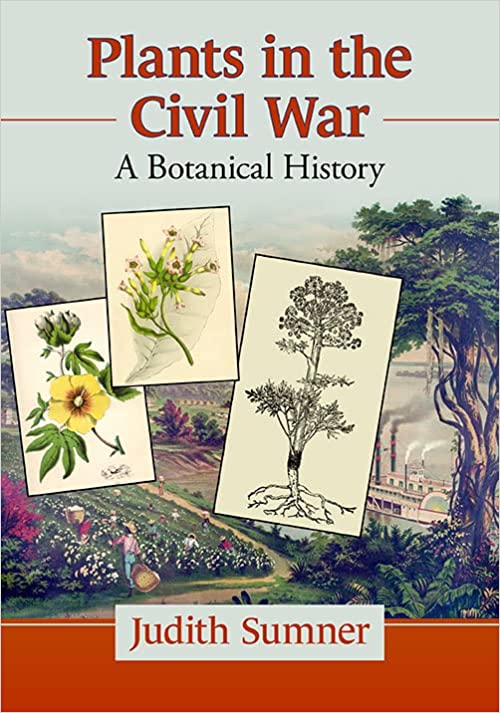mailchi.mp
The American Heritage Museum’s Vietnam War Gallery will be expanding with two significant new additions over the coming year: a Soviet SA-2 Guideline surface-to-air missile (SAM) on long-term loan ...www.americanheritagemuseum.org
Two New Major Artifacts Arrive for Planned Display in the Vietnam War Gallery at the American Heritage Museum July 9, 2025 The American Heritage Museum’s Vietnam War Gallery will be expanding with t...
- This event has passed.
Speaker Series: Botanical History of the Civil War by Judith Sumner
November 10, 2023 @ 2:00 pm, ending 3:30 pm
$10 – $20
Canebrakes to Cotton Fields: Botanical History of the Civil War
As the first comprehensive botanical history of the Civil War, Judith Sumner’s recent book Plants in the Civil War: A Botanical History examines military and civilian uses of plants, from plantation landscapes and agriculture to slave medicine, prosthetic limbs, and military engineering. Plants provided both the cash crops at the heart of the conflict and the raw material used in waging war. This illustrated talk will emphasize the key topics of crops and enslavement, plantation life, Civil War medicine, and southern landscapes and war—all illuminated from a botanical perspective.
Judith Sumner Biography
Judith Sumner is a botanist who specializes in ethnobotany, flowering plants, plant adaptations, and garden history. She has taught extensively both at the college level and at botanical gardens, including the Arnold Arboretum of Harvard University and Garden in the Woods. Judith graduated from Vassar College and completed graduate studies (M.S., Ph.D.) in botany at the University of Massachusetts (Amherst). She studied at the Royal Botanic Gardens, Kew, and at the British Museum (Natural History) and did extensive field work in the Pacific region on the genus Pittosporum.
Judith has published studies in the American Journal of Botany, Pollen et Spores, and Allertonia, as well as monographing two families for Flora Vitiensis Nova. Her other projects and areas of interest have included field studies in the Great Smoky Mountains, work with AID/Santo Domingo on developing petroleum-rich plants, and a commitment to science education. Judith served as a visiting scientist for several summers in the LEAP (Learning About Plants) program She has spent summers working with teachers the Museum Institutes for Teaching Science (MITS) program and conducting workshops on science writing.
Judith has been a guest on the Martha Stewart Living television show, the PBS program “Cultivating Life” with Sean Conway, the Annenberg Channel, and various other PBS and educational programs. Her recent Arnold Arboretum lecture on victory gardens is available for viewing online at the WGBH Forum website. Her column “The Gardener’s Kitchen” (under the pseudonym Laura Craig) appeared in Horticulture magazine for several years. She also contributes online to the blog and Herbarium website of the Herbal Academy of New England. Judith is a frequent invited lecturer for botanical and horticultural organizations and symposia, including the Arnold Arboretum of Harvard University, the New York Botanical Garden, Mohonk Mountain Reserve, Cornell University, the FDR Library and National Archives, and Kykuit/The Rockefeller Estate.
In 2007 Judith was awarded the Gertrude B. Foster Award for Excellence in Herbal Literature by the Herb Society of America. Her book American Household Botany won the American Horticultural Society Book Award in 2005. She recently authored the first botanical history of World War II, Plants Go to War: A Botanical History of World War II (McFarland, 2019). Her newest book, Plants in the Civil War: A Botanical History, was published in late 2022 by McFarland and has been shortlisted for the Council of Botanical and Horticultural Libraries book award.



